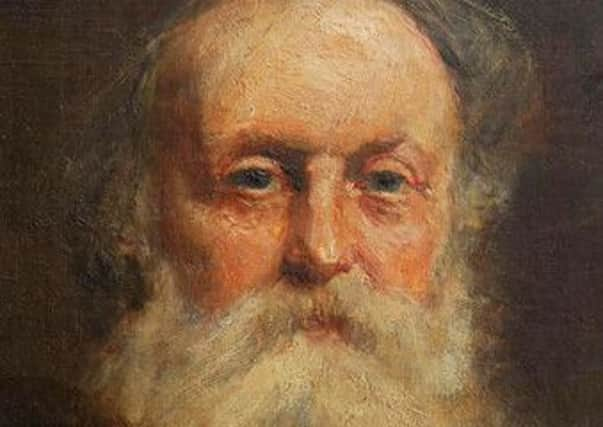Historic Gaelic collection to be recognised


When Hebridean excise officer Carmichael Watson realised the impact that industrialisation and the Highland Clearances was having in the region, he carried out 50 years of research which is now regarded as one of the best sources for Gaelic history and language.
The collection is one of nine UK archives, and the only Scottish one, being registered with the Unesco Memory of the World Programme, which are being announced at a ceremony in Edinburgh today.
Advertisement
Hide AdThe field notes of Watson, who died in 1912, are one of the earliest attempts to record Gaelic speech, oral histories, and culture.
He recorded rare, sometimes secret, traditions such as traditional blessings and charms.
Through the work of the Watson project, these papers have been transcribed, unlocking extraordinary stories ranging from legends of loch monsters and second sight, to epic clan battles, Gaelic insults and crofting customs.
The collection is now housed in Edinburgh University.
Mr Carmichael’s great grandson Alasdair Carmichael and his great, great grandson Sean, who live in the Rough Bounds in the West Highlands will also be in attendance.
Dr Irene O’Brien, chair of the Scottish Council on Archives, said: “This is the first time that Scotland has the privilege of hosting the awards of the Unesco UK Memory of the World Inscriptions.
“The Scottish Council on Archives is delighted to see this celebration of archival heritage take place in Scotland.
Advertisement
Hide Ad“Not least because no fewer than 11 of 41 inscriptions on the UK Register are found in Scotland’s archives. This underlines the extraordinary richness of Scotland’s archive heritage.”
Elizabeth Oxborrow-Cowan, chair, UK Committee Unesco Memory of the World Programme, said: “I hope the awards will encourage people to discover the remarkable resources that are available for everyone to use, from internationally renowned organisations such as The UK National Archives to locally available collections such as those held by the newly accredited Falkirk Archives.”
Advertisement
Hide AdDonald William Stewart, of Edinburgh Universirty Library, said: “The thousands of papers in his extraordinary collection testify to Alexander Carmichael’s status as one of the greatest folklore collectors not just in Scotland, but in the world.
“For more than fifty years he dedicated his life to recording the oral traditions, culture, and beliefs of people across the Scottish Highlands. Their willingness to share with him even their most secret and private lore, such as blessings, prayers, and charms, demonstrates how much they responded to Carmichael’s warmth and candour, not just as a collector, but as a friend.
“It is a huge honour for us at Edinburgh University Library to have one of our collections inscribed on the Register for 2014. The university’s archives of the songs, stories, and lore of the people of Scotland, in manuscript and on tape, are one of its greatest treasures. One of our fundamental goals is to unlock these amazing resources, making them available to people worldwide, not least in the communities where they were gathered in the first place. It’s a great encouragement for us to receive such a prestigious award, and we would like to pay tribute to the many descendants and relatives of those who gave lore, and to the family of Alexander Carmichael himself, for all the help they have given us over the years.”
Other collections include the Royal Mail Archives (1636 to 1690) and the Shakespeare Documents, which tell the story of the playwright’s life.
The International Register is a catalogue of the world’s most important documentary heritage, with country registers feeding in to it. The UK register was set up in 2010.